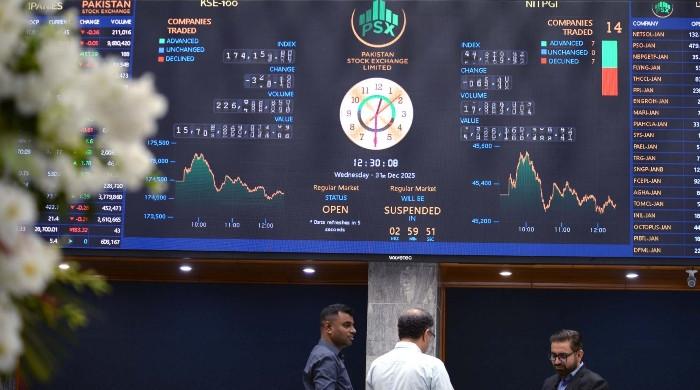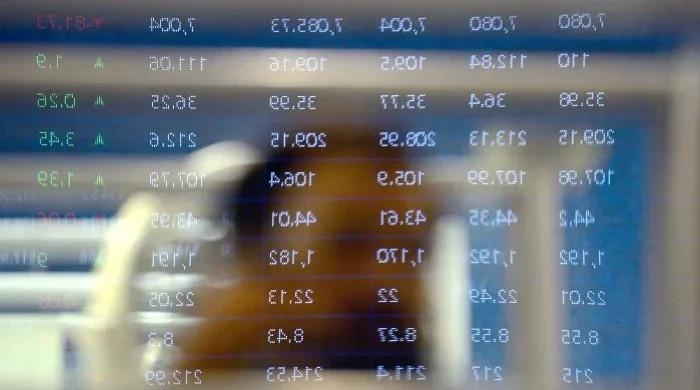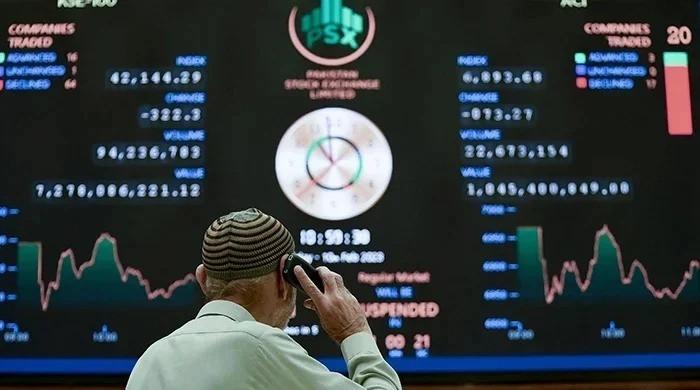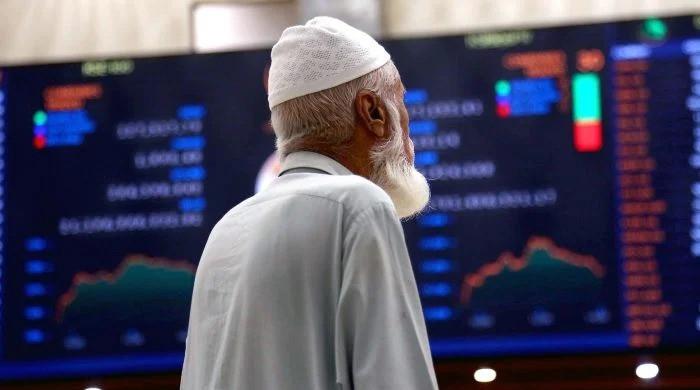Pakistan faces threat of hunger amid increased cost of living: WEF report
WEF report identifies cost-of-living crisis as biggest short-term risk while climate as a long-term concern
January 12, 2023
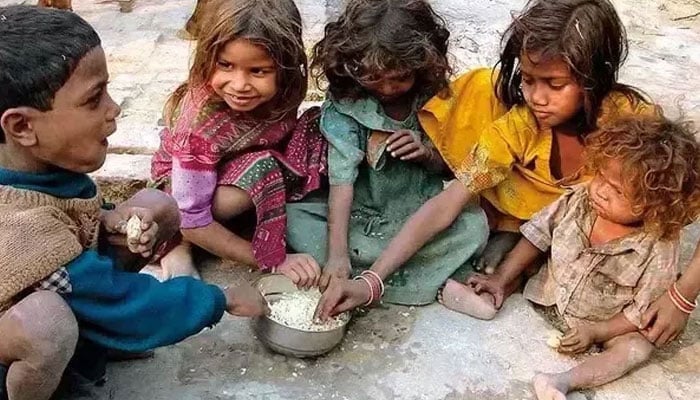
- WEF sees Pakistan beset with threat of hunger.
- Says extreme weather events may intensify cost-of-living crisis.
- WEF's report warns about deeply interconnected global risks.
ISLAMABAD: The World Economic Forum (WEF) sees Pakistan facing a huge threat of hunger and distress amid a prevalent cost-of-living crisis, warning that it may be further aggravated by extreme weather events and constrained supply.
For the past 17 years, the WEF's Global Risks Report has warned about deeply interconnected global risks. Conflict and geo-economic tensions have triggered a series of deeply interconnected global risks, says the report .
These include energy and food supply crunches, which are likely to persist for the next two years, and strong increases in the cost of living and debt servicing. At the same time, these crises risk undermining efforts to tackle longer-term risks, notably those related to climate change, biodiversity and investment in human capital.
About Pakistan, the report identifies that a combination of extreme weather events and constrained supply could lead the current cost-of-living crisis into a catastrophic scenario of hunger and distress for millions. This can also turn the energy crisis towards a humanitarian crisis. Energy shortages — because of supplier shut-offs or natural, accidental, or intentional damage to pipelines and energy grids — could cause widespread blackouts and fatalities if combined with seasonal extreme weather.
The report identified the following top ten risks that pose the biggest threats to Pakistan in the next two years: 1) Digital power concentration and monopolies, 2) Failure of cybersecurity measures (including loss of privacy, data fraud or theft, cyber espionage), 3) Rapid and/or sustained inflation, 4) Debt crises, 5) State collapse, 6) Lack of widespread digital services and digital inequality, 7) Interstate conflict, 8) Terrestrial biodiversity loss and ecosystem collapse, 9) Terrorist attacks, 10) Employment and livelihood crisis.
Amir Jahangir, Chief Executive Officer Mishal Pakistan, the Partners Institute for New Economy and Societies Platforms of the World Economic Forum, said: “The Global Risk Report 2023 identifies that for Pakistan, both the affordability and availability of basic necessities can stoke social and political instability”.
He further said, “Last year, the increase in fuel prices alone led to protests in an estimated 92 countries, some of which resulted in political upheaval and fatalities, alongside strikes and industrial shutdowns”.
Jahangir said: “The impact of insecurity will continue to be felt in Pakistan and may also exacerbate instability due to simultaneous food and debt crises, resulting in the emergence of a possible more technocracy-based decision-making leadership framework.”
The report identifies that the cost-of-living crisis is the biggest short-term risk while the failure of climate mitigation and climate adaptation is the largest long-term concern. The geopolitical rivalries and inward-looking stances will heighten economic constraints and further exacerbate both short- and long-term risks.
The World Economic Forum report estimates that over 800,000 hectares of farmland have been wiped out by 2022 floods in Pakistan — this has resulted in increasing commodity prices significantly in a country that is already grappling with record 27% inflation. Water stress is also widespread in Pakistan that particularly impacts women and girls responsible for water collection, with knock-on impacts on health and education outcomes. More widespread scarcity, combined with paralysis of international cooperation mechanisms, has necessitated a degree of water nationalism, resulting in prolonged disputes between neighbouring states and countries. In the face of spreading humanitarian crises and state instability, water infrastructure could continue to be used both as a weapon and target, mirroring past water conflicts and terrorism in India, Pakistan, and Afghanistan.
On the international front, the global pandemic and war in Europe have brought energy, inflation, food, and security crises back to the fore. These create follow-on risks that will dominate the next two years: the risk of recession; growing debt distress; a continued cost of living crisis; polarised societies enabled by disinformation and misinformation; a hiatus on rapid climate action; and zero-sum geo-economic warfare.
“The short-term risk landscape is dominated by energy, food, debt and disasters. Those that are already the most vulnerable are suffering — and in the face of multiple crises, those who qualify as vulnerable are rapidly expanding, in rich and poor countries alike. In this already toxic mix of known and rising global risks, a new shock event, from a new military conflict to a new virus, could become unmanageable. Climate and human development therefore must be at the core of concerns of global leaders to boost resilience against future shocks,” said Saadia Zahidi, WEF Managing Director.




